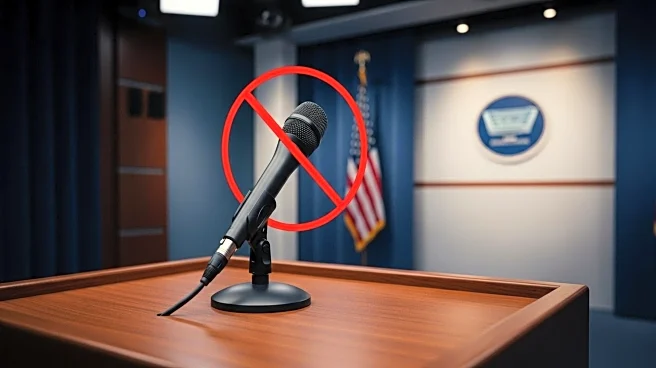What is the story about?
What's Happening?
Defense Secretary Pete Hegseth has introduced new regulations for journalists covering the Department of Defense, requiring them to sign a pledge not to gather or report any information, including unclassified data, without prior authorization. This move has sparked criticism from media organizations, who argue that it undermines the principles of a free press. The new policy, detailed in a 17-page document, states that journalists who fail to comply will lose their press credentials, effectively barring them from accessing the Pentagon. The document emphasizes the need for transparency to foster accountability and public trust, but insists that all information must be approved for public release by an authorized official.
Why It's Important?
The new media restrictions at the Pentagon have significant implications for press freedom and transparency in the U.S. government. By limiting journalists' ability to report independently, the policy could hinder the public's access to critical information about military operations and decisions. This change may affect how the media covers defense-related issues, potentially leading to less scrutiny and accountability. The policy has been criticized as a direct assault on independent journalism, raising concerns about the balance between national security and the public's right to know.
What's Next?
The implementation of these restrictions may lead to legal challenges from media organizations and advocacy groups who view the policy as unconstitutional. There could be increased pressure on the Pentagon to revise or revoke the pledge requirement to ensure that journalists can continue to report freely. Additionally, the policy may prompt discussions in Congress about the need to protect press freedom while addressing security concerns.
















